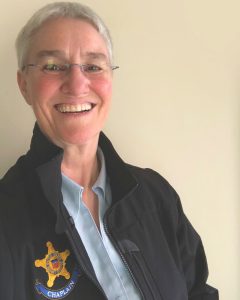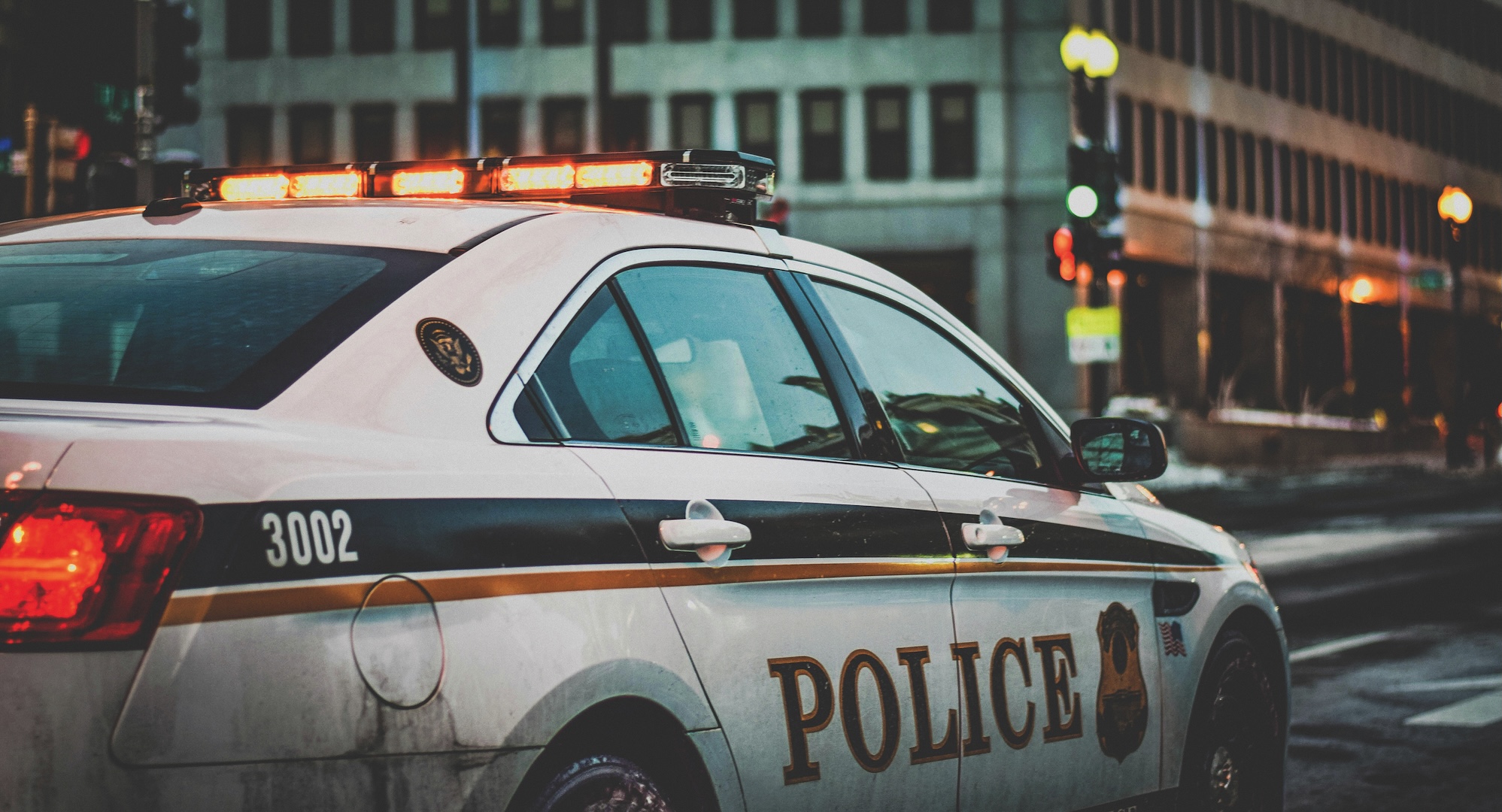Bringing Compassion to Law Enforcement’s Front Line
Deb O’Neil Lewis was working as an adjunct faculty, teaching a required course for adult learners at a campus in Battle Creek, Michigan. Over time she realized that a number of her students were first responders—detectives, police officers, EMTs, and counselors—who were sharing detailed, personal benefits they’d gained from the course. “When I think of it now, I am amazed by how just six to seven class sessions produced such benefits,” she says. “In my heart and soul, a question arose. ‘I wonder if they have a chaplain?’”
She says she took the next natural step. “I Googled it! And what I found was the International Conference for Police Chaplains.”
The cost was reasonable, so she jumped at the opportunity. “It was like, this is a no-brainer. I am doing this—for $120!”

Lewis says that $120 turned out to be the jumping-off point for a thirty-year career that has been profoundly fulfilling. “The root of being a chaplain is that I serve all people. I tend to their souls. In order to do that, I need to be the student, and you need to be my teacher. Help me understand your spirituality, your faith, your connections that bring value and meaning to you. In your experiences, what connects you to mystery and to the God of your understanding? Or if you don’t believe in God, then what does that look like for you?”
Ordained in 2007 as a Covenant minister and board-certified chaplain, Lewis seeks to deliver critical emotional and spiritual first aid to law enforcement officers, who she says are on the front lines in the battle of peace over hate. “The image of God can mean so many different things. And within our world of divisiveness, that is what we need more of, in my humble opinion,” she says, adding that her passion is serving the imago Dei, or image of God, in law enforcement.
Lewis is especially fond of St. Francis’s prayer: “Lord, make me an instrument of your peace. Where there is hatred, let me sow love.”
Now in her twenty-ninth year as a chaplain, Lewis, or “Chap” as her officers call her, has served in numerous capacities, from youth minister to college professor to volunteer law enforcement chaplain and chaplain for the Statewide Volunteer Army Airborne Unit. She has specialized training in crisis intervention, trauma, and psychology.
In 2023 she received a call from the United States Capitol Police chaplain manager who was in the process of starting up a Chaplain Corp program. Someone had recommended her to assist with starting the program, based on her experience as a law enforcement chaplain, her involvement with the International Conference for Police Chaplains, and her experience working with veterans and crisis intervention.
Starting a chaplain program can be a lengthy process as every aspect must be approved up through the chain of leadership. So getting it off the ground took time. Lewis has been serving with them since last October. The program began with six chaplains, a number that is expected to expand in time.
After a mob stormed the United States Capitol on January 6, 2021, disrupting a joint session of Congress convened to certify the presidential election results, dark ripples of grief spread through the law enforcement circles she now serves as chaplain to the Secret Service and Capitol Police. According to the United States Department of Justice, approximately 140 Capitol and Metropolitan police officers were assaulted by the rioters that day. One officer died of a series of strokes after being hospitalized from injuries from the attack. Four officers died by suicide.
“January 6 heightened the necessity, the importance, the value of chaplains,” Lewis says. “They gravely reached out to some clergy in the general area for help. That tells you there is a need to care for your own people.”
The root of being a chaplain is that I serve all people. I tend to their souls. In order to do that, I need to be the student, and you need to be my teacher.
In her role now, she commits to being in the field, walking through the trauma and tensions officers face, partly to gain their trust and also to experience their challenges first-hand.
“When the president or vice president is moving around, there’s a cascade of law enforcement personnel helping to keep everyone safe, including getting the president from point A to point B,” Lewis says. “In our area, that includes not only the Secret Service but also the Metro Police Department. And it includes the State Park Police Department because there are state parks in Maryland, and that corner of Maryland goes right into DC and Virginia. You’ve got three, four, or sometimes five different law enforcement agencies that are involved at all times to protect.”
Lewis ministers to everyone in the law enforcement family, from the top commanding officer all the way to the custodian who’s working in the building. Her priority is law enforcement officers and personnel, and secondarily, their family members.
“The law enforcement officers particularly are under a huge, or macro, microscope,” Lewis says. “And when a situation gets into the media or public eye, then there is judgment toward the entire field of law enforcement.”
Lewis also ministers to witnesses, community members, survivors, and bystanders. She draws from what she calls her “ministerial bag of tools” for these tasks— noticing, talking with officers, gaining their trust, and helping them open up. One goal is to prevent suicide in the midst of high-stress environments. “We do a lot of debriefing. I want to make sure that people are able to talk about what they saw, what they experienced. I ask, ‘How are you going to take care of you? What do you need right now?’”
In the event of a death by suicide, Lewis says her job is to reach out to officers and help calm the environment. “To move into and through some of that initial shock, but more so, asking, how do I help keep and build the morale to steady the course and stay in the game of the work that is at hand?”
Through it all, Lewis attempts to live out St. Francis’s prayer and hopefully create peace for law enforcement officers.
O divine Master, grant that I may not so much
seek to be consoled as to console,
to be understood as to understand,
to be loved as to love.
For it is in giving that we receive,
it is in pardoning that we are pardoned,
and it is in dying that we are born to eternal life.
— Saint Francis Peace Prayer
This article was first published in the Covenant Companion Winter 2025 issue, the official magazine of the Evangelical Covenant Church.














